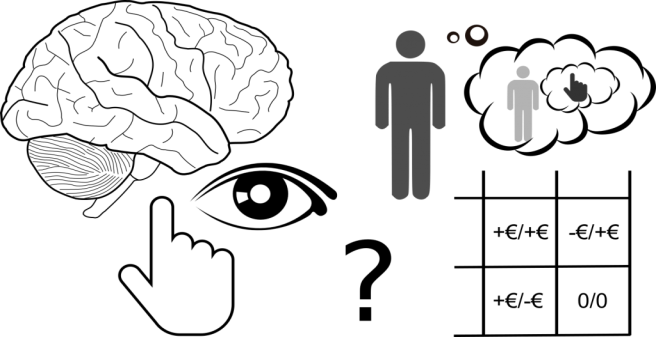Decision Neuroscience of Human Interactions
Overview
Welcome to the homepage of the newly funded Decision Neuroscience of Human Interactions group!
Social cooperation underlies most if not ultimately all human achievements. When joining forces, individuals can achieve more than in isolation. However, cooperation risks exploitation. Each individual faces the temptation to defect and reap the benefits of cooperation without paying its costs. If too many individuals defect, cooperation breaks down and everybody ends up worse. Cooperation thus exposes a dilemma between collective and individual rationality. Decisions to cooperate or not thus necessarily involve thinking about decisions of others and about possible payoffs.
The groups goal is to address the following broad questions: How do humans make decisions to cooperate with each other? What are the computational and neural processes of such decisions? The planned projects combine computational modeling of behavioral data, evolutionary game theory, model-based and multivariate analyses of fMRI data, pupillometry, virtual reality, and testing of psychiatric patients.
The group is funded by an Emmy-Noether research grant to Christoph Korn. Psychiatric patients are tested in collaboration with Sabine Herpertz and her lab at the Heidelberg University Hospital.

